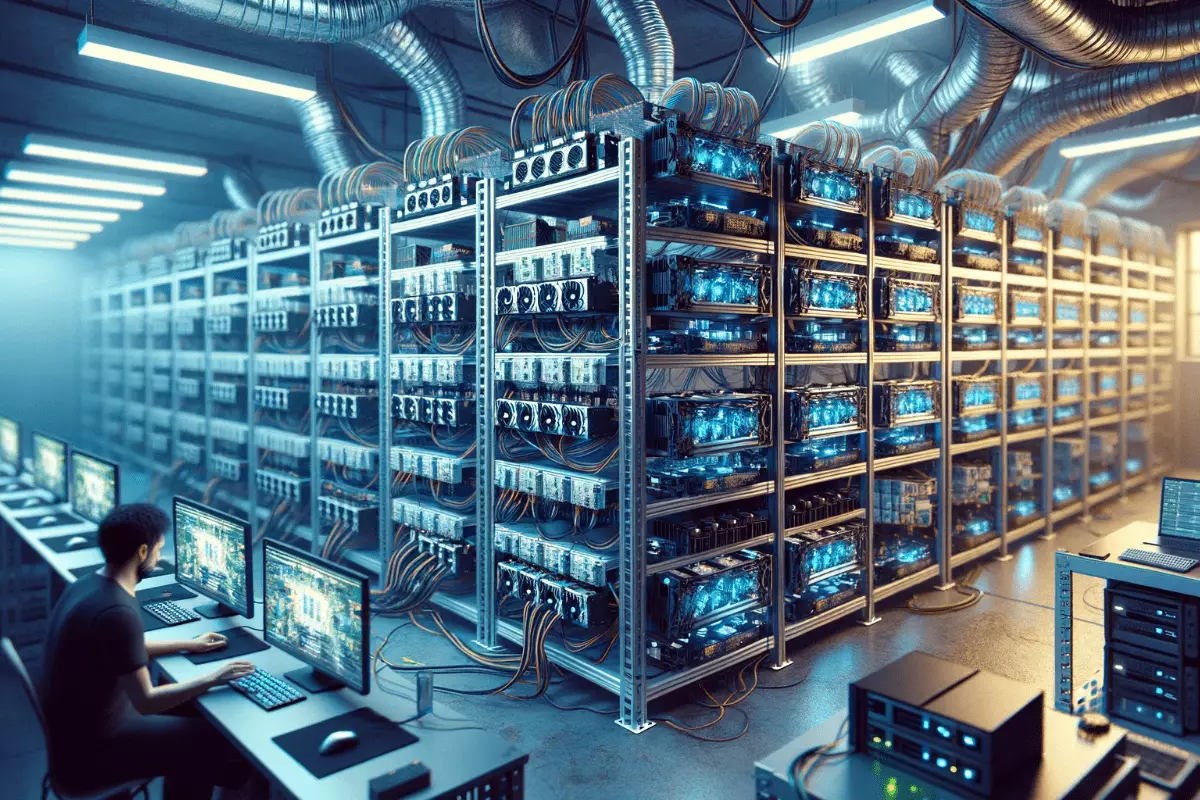In the world of technology, the collaboration between blockchain and artificial intelligence (AI) has the potential to create a transformative impact. The combination of these two fields can lead to exciting advancements and diverse opportunities. According to a recent report from TenSquared Capital, AI can enhance the speed, efficiency, and structure of the Web3 arena by automating tasks, empowering developers, boosting data-driven choices, and increasing trust and transparency for users.
One of the key areas where AI can have a significant influence is in simplifying code writing for the crypto industry. Tools like ChatGPT and Github Co-Pilot can enable developers to work on different blockchains, even if they are not well-versed in a specific programming language. For example, a developer proficient in Solidity but needing to code in Rust for Cosmos can rely on these AI tools for assistance. By lowering the barrier to entry, AI code-writing tools allow developers to write code more quickly and efficiently.
AI not only speeds up code writing but also plays a crucial role in improving blockchain infrastructure. Through on-chain data analysis, AI can create smart contracts and consensus protocols that make real-time decisions. Additionally, AI-based detection systems can enhance Web3 security by ensuring more accurate and efficient smart contract decisions. Startups like Oraichain have already embraced this technology by employing AI-powered APIs to lay the groundwork for intelligent smart contracts and advanced decentralized applications (DApps).
Experts predict that AI agents will utilize cryptocurrencies for most payments in the future. Large language models (LLMs) powered by AI can handle transactions via crypto wallets and effectively interact with smart contracts and decentralized finance (DeFi) protocols. This move towards AI-driven payments has the potential to revolutionize the way we conduct financial transactions in the crypto industry.
Security is a significant concern for users entering the world of cryptocurrencies. AI plays a vital role in addressing this roadblock by enhancing Web3 security, fending off cyberattacks, and strengthening blockchain defenses. In a world where cyber fraud groups have made off with over $1 billion from the crypto industry, AI-based detection systems offer a much-needed layer of protection. By developing AI-driven consensus methods, such as AI Delegated Proof-of-Stake systems, like the one being developed by Velas, the blockchain community can ensure the safety and scalability of their platforms.
The integration of AI into decentralized finance (DeFi) holds immense promise. Historical lending data can be utilized by AI to create credit scores, leading to improved loan decisions. Spectral’s MACRO Score, for example, is an on-chain credit score powered by advanced machine learning for DeFi lending, providing lenders with valuable information to make informed decisions.
Trading bots equipped with predictive analytics can empower traders to make better-informed decisions and profit from market trends. Platforms like 3Commas offer crypto trading bots that facilitate automated trading strategies. Additionally, generative AI has the potential to personalize gaming stories and characters, enhancing the immersive experience for gamers. With the help of AI NPCs created by Inworld AI and AI Agents developed by ASM, gaming worlds can become more interactive and captivating.
AI has the capacity to enhance NFT platforms and Web3 social networks by delivering personalized content and relevant product recommendations to users. This personalization can significantly improve the user experience and engagement. By leveraging AI algorithms, these platforms can better understand user preferences and tailor their offerings accordingly.
While the potential benefits of integrating blockchain and AI are substantial, there are challenges ahead. Ethereum co-founder Vitalik Buterin has emphasized the need to create a single, decentralized AI that can be trusted by other applications. Ensuring the trustworthiness, reliability, and transparency of AI systems will be a critical step in realizing the full potential of this collaboration.
The collaboration between blockchain and artificial intelligence holds immense promise. AI has the power to enhance the speed, efficiency, and security of Web3, while also enabling developers to write code more swiftly. The integration of AI into various aspects of the crypto industry, from payments to gaming, trading, and NFT platforms, can revolutionize the way we interact with technology. However, it is crucial to address the challenges of creating decentralized AI systems that are trusted by all stakeholders. By harnessing the potential of this powerful collaboration, we can create a future that is more efficient, secure, and innovative.


Leave a Reply